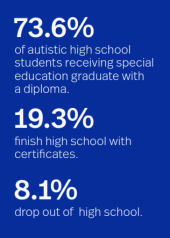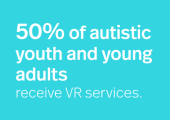In The Politics of Autism, I analyze the discredited notion that vaccines cause autism. This bogus idea can hurt people by allowing diseases to spread. And among those diseases could be COVID-19.
Antivaxxers are sometimes violent, often abusive, and always wrong. A leading anti-vaxxer is presidential candidate Robert F. Kennedy, Jr. He has repeatedly compared vaccine mandates to the Holocaust. Rolling Stone and Salon retracted an RFK article linking vaccines to autism.
"It increases vaccine hesitancy and people choosing not to give their kids vaccines, and that increases the resurgence of vaccine preventable diseases," Zoe Gross, director of Advocacy at the Autistic Self-Advocacy Network, told Salon. Perhaps the most prominent instance of this occurred in 2015, when nearly 200 people were sickened with measles despite the disease having been eradicated 15 years earlier due to parents not vaccinating their children.
"The other reason is that there's a lot of ableism and anti-autistic sentiment involved in the anti-vaxxer movement, and this lie that vaccines cause autism," Gross said. "You can see that these are people who would rather have their kids get vaccine-preventable diseases and potentially die than do something that they think erroneously risks their kids becoming autistic. That's a pretty bleak view of autism."
...
Mitzi Waltz is a docent/researcher at Vrije Universiteit Amsterdam and formerly a senior lecturer in autism studies at the United Kingdom's Autism Centre of Sheffield Hallam University.
"Probably his greatest disservice to autistic people has been amplifying the voices of figures who see autism as a disease state," Waltz wrote to Salon, citing his support of "thoroughly discredited fringe practitioners like Mark and David Geier." As a result, Waltz described how in the 1990s the "'do your own research' crowd" created a climate wherein "autistic children were written off by most schools and psychologists, parents were left without the services they and their children needed, and autistic adults weren't even in the conversation."


